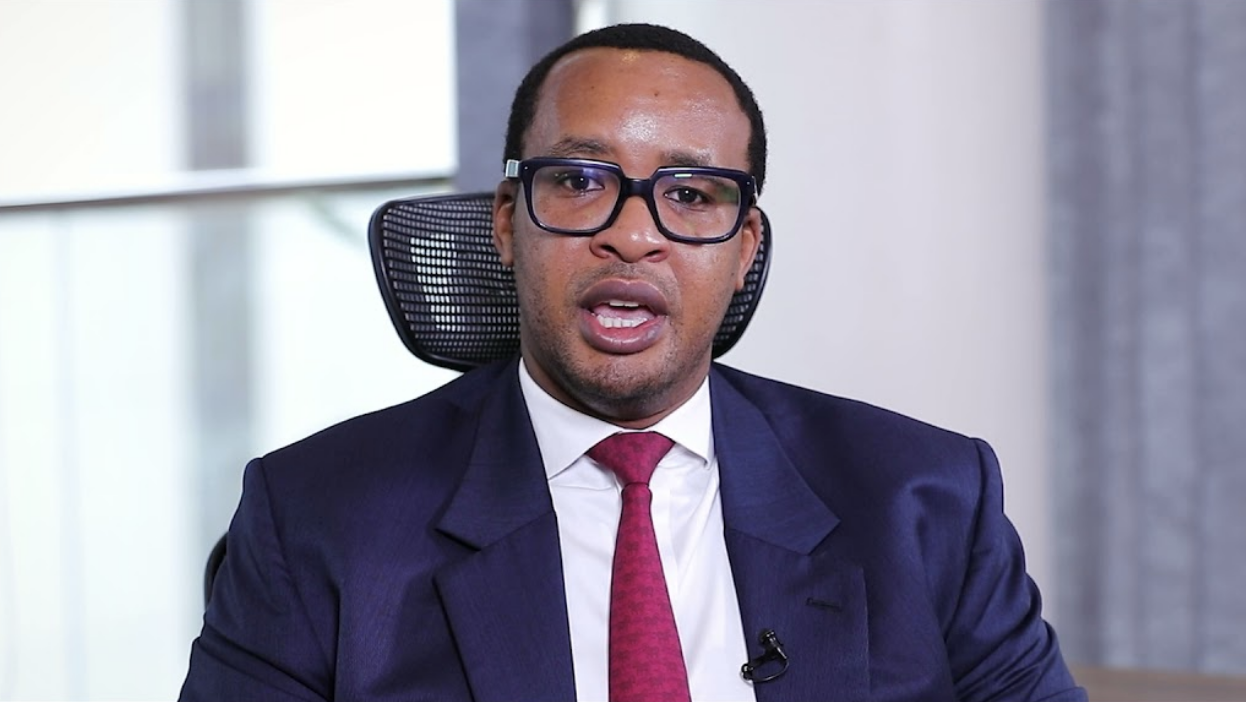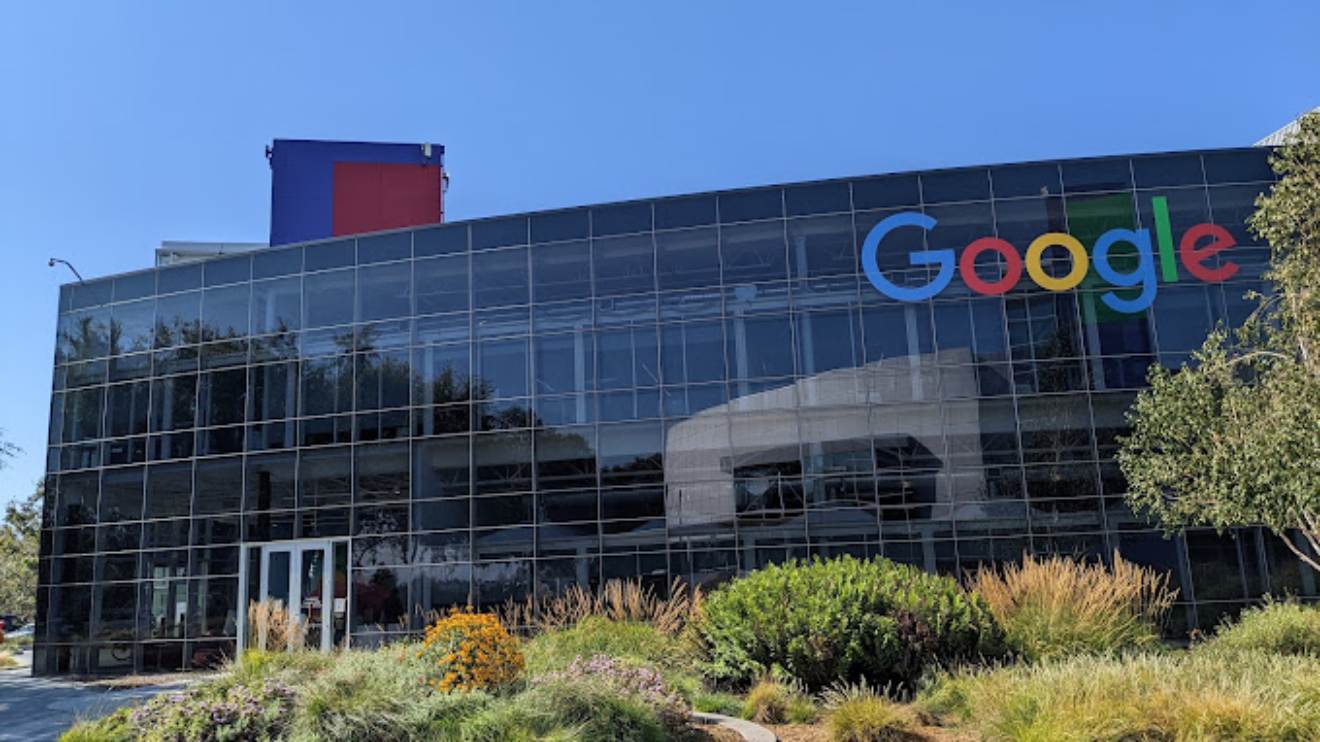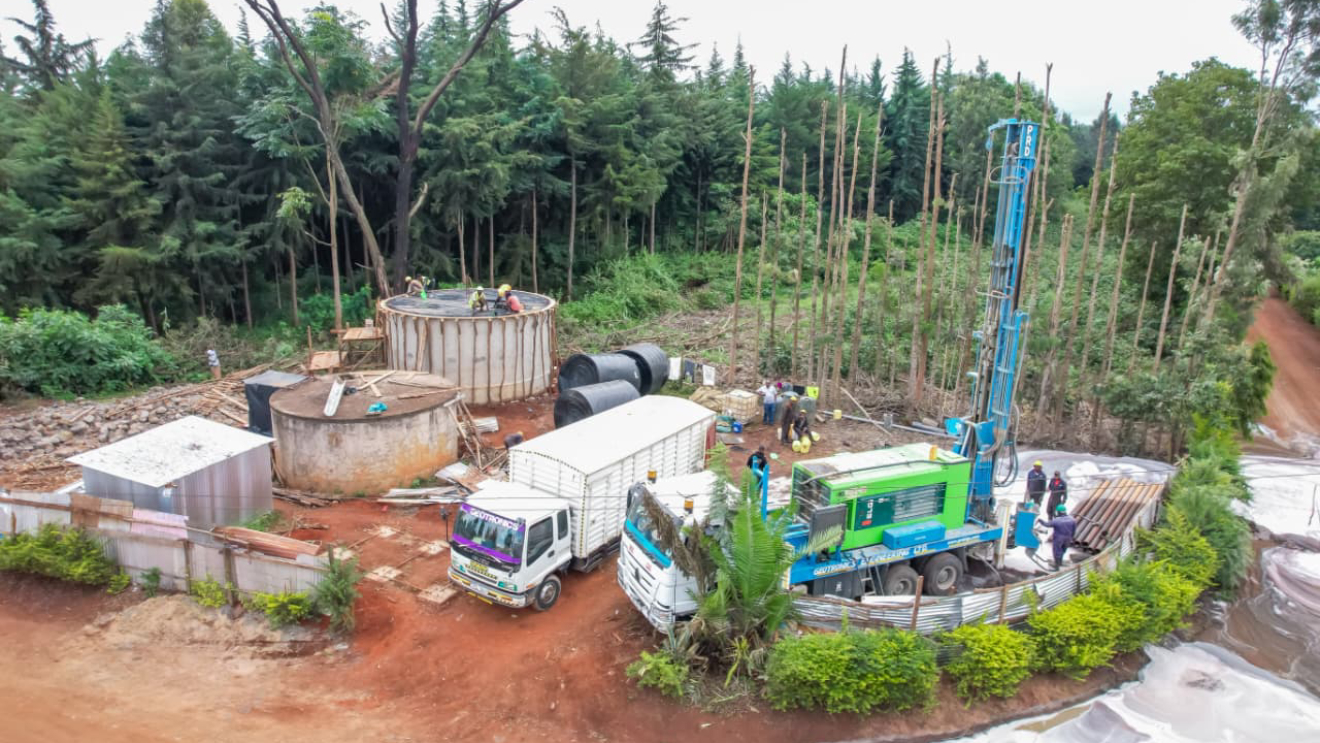She is a health advocate with a passion for cervical cancer elimination who goes the extra mile to address the stigma linked to the ailment that affects thousands in Kenya.
Benda Kithaka says she uses her wide experiences to inspire change among the populace.
Benda says, “As a wife and mother of three amazing souls, I uphold that health is the most valid form of wealth, yet most humans are battling lifestyle diseases that could have been prevented."
She used to writhe as a child at the sight of blood and was terrified of needles and this ruled out a career in medicine for her and she had sights on a career in the legal field.
She believed, as a lawyer, she would be able to advocate for women's rights as well as addressing gender violence and Female Genital Mutilation (FGM) and other injustices.
Read More
“I recall with admiration when I first visited my aunt, a lawyer in Nairobi. I admired her flashy car and lifestyle. Listening to her talk about her profession, I was motivated to defend the rights of others.”
Her poor score in Math would lock her out of the legal profession, so she settled for political science while eyeing International Law in the future, but life had other plans for her.
“My dad died and I was thrust into the role of co-parenting with my mom to help fend for our family. Those moments though callous, instilled leadership and responsibility in my life long journey.”
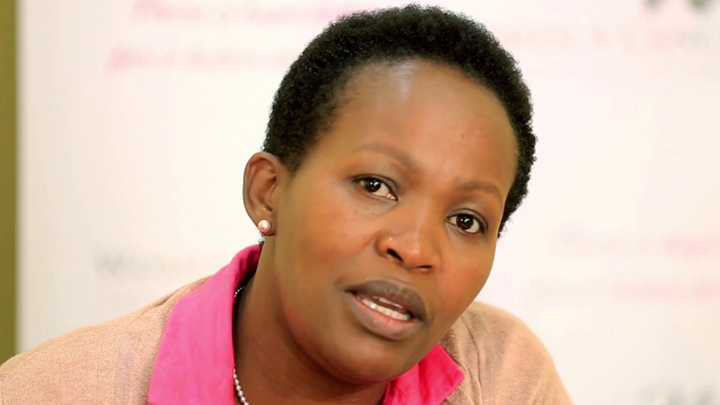
Benda Kithaka. PHOTO/COURTESY
Benda launched her illustrious career as a field interviewer in the year 2000 before rising to the rank of Research Executive in six years, while visiting various countries across Africa.
She then progressed into mainstream marketing and she worked for the next five years on innovations aimed at touching customers’ hearts, first at Keringet Water followed by Toyota Kenya.
“I was the Head of Marketing at Toyota Kenya when the Global Toyota Corolla recall happened. Kenya was the only country that continued to sell Toyota Corolla during the recall. My team and I excelled in managing the crisis communications and reclaiming customers trust.”
After he battle with the recall drama, she now had to turn to a personal battle after her sister learnt that she had cervical cancer.
“We learnt later that it was a pre-cancer of the cervix,” she said reflectively.
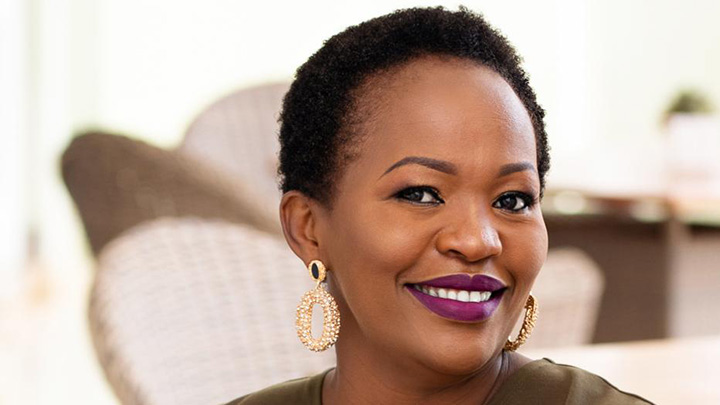
Benda Kitheka. PHOTO/COURTESY
Without undergoing chemotherapy, radiotherapy or any major surgery, her sister got treated and fully recovered, and later even managed to get a baby.
“This was surprising because all along, cancer meant death sentence for me!”
That experienced stimulated Benda’s curiosity and she researched more on health communications with the aim of getting more women to enjoy better health outcomes.
“I felt compelled to take up health advocacy. During the same period, I was nursing a sickly toddler and my experience with the healthcare system in the country left me yearning for more. The opportunity presented itself when I met three women who felt the same way, and together we co-founded Women4Cancer in 2012.”
With Women4Cancer, they have been raising awareness on the benefits of early testing, while facilitating early detection and treatment, to reduce cervical cancer prevalence.
“I served in the organisation for seven years as a volunteer building new networks and gaining the knowledge and skill to excel in my next venture.”
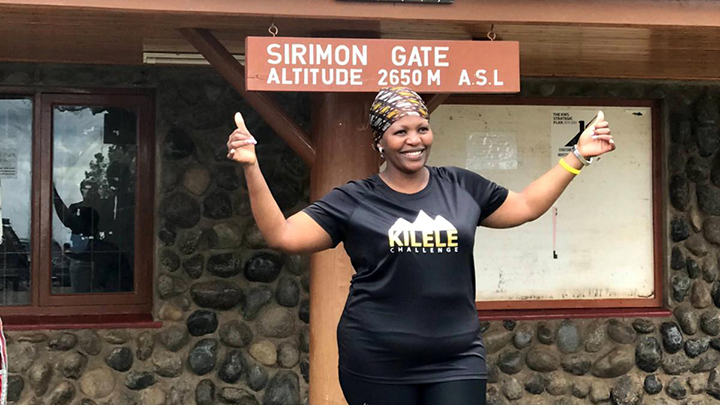
Benda Kithaka. PHOTO/COURTESY
She later founded Kilele Challenge, which she uses to inspire others to live their best lives.
Following the launch of the HPV Vaccine in 2019, she started battling depression and during her ordeal she noted the following health inequities through her personal experience:
• Cancer is expensive and leaves families impoverished.
• Some treatments have major side effects.
• Stigma in survivorship.
• Women cancer survivors' vulnerabilities – some lose jobs, husbands, and body organs, with lasting adverse effects.
• There is the fear of recurrence, more expenses, and higher risks of death.
“My friend Rose, a formidable advocate, spent five years advocating for the HPV Vaccine and just four months before its introduction, she died of a cervical cancer recurrence. I was devastated. We realised that, for those who survive, we must focus on the quality of life; hence Kilele was born.”
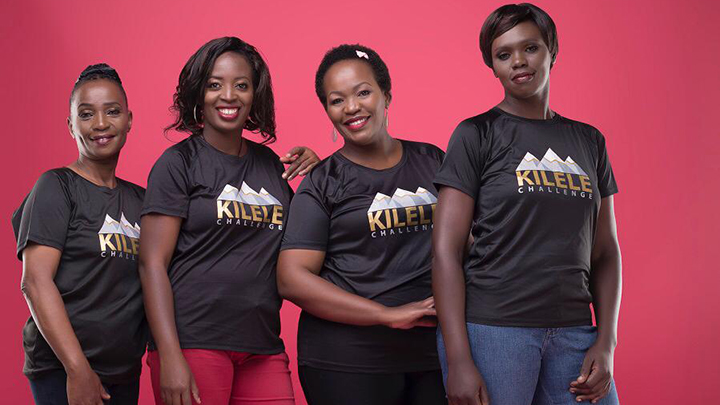
PHOTO/COURTESY
She says Kilele Health seeks to engage cancer survivors deeply to create stories of their experiences and use them to inspire change in the society while pushing for better policies.
“Amazingly, last year, amid the Covid-19 pandemic, we climbed Mt Kenya with 12 cancer survivors and caregivers. It was empowering to see these survivors overcome personal and societal barriers. All 12 reached Shiptons, and 8 summited Lenana Point with no prior experience in hiking.”
They had hike tough trails like Elephant Hill to build resilience ahead of the Mt Kenya climb.
“We trained on Story Telling for Impact; and they use this skill to educate others about cancer.”
Kilele also hosted a Health Symposium virtually and this was attended by participants from 25 countries and focused on cancer survivorship and hurdles that needed to be overcome.
She has managed to make Kilele Challenge a yearly survivorship engagement platform while also focusing on research on the quality of life in a bid to influence policy decisions in Kenya.
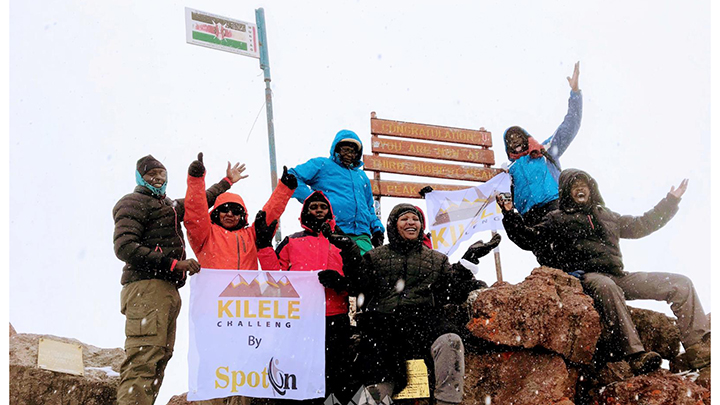
Kilele Challenge atop Mt Kenya. PHOTO/COURTESY
Benda employs her advocacy and technical advisory roles a member of a number of global, regional and national technical working groups.
“Technical Working Groups (TWGs) offer platforms to join hands with other experts and design solutions to cancer control.”
She co-chairs the #STOPCervicalCancer initiative and she shares some of its achievements.
• Co-chaired Prevention Pillar writing the National Cancer Control Strategy 2017–2022; used in decision-making at National Cancer Control Programme (NCCP) in Ministry of Health.
• Supported by the American Cancer Society, we spearheaded the formation of the STOP Cervical Cancer Initiative, a committee within NCCP.
• In January 2019, championed the development of the 1st National Cervical Cancer Elimination Week; now an annual advocacy platform within MoH.
• On the National Vaccines and Immunization Programme Advocacy Communications and Social Mobilisation (NVIP-ACSM) team, I was involved in the introduction of the HPV Vaccine.
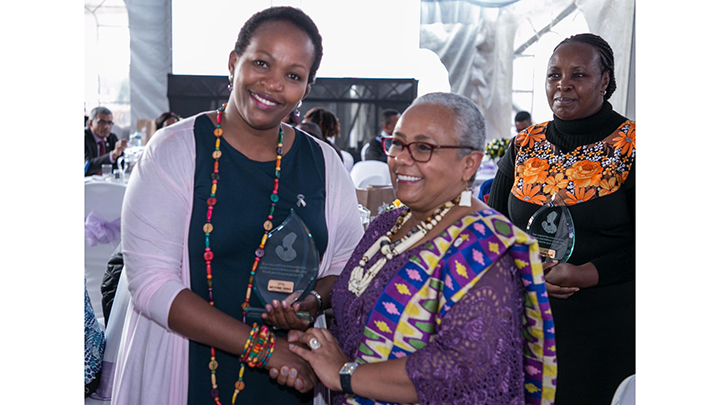
Benda Kithaka and First Lady Margaret Kenyatta. PHOTO/COURTESY
Globally, she represents the voice of the patient from Low and Middle-Income Countries (LMICs) and in May 2019 she was backed by Union for International Cancer Control (UICC).
“I joined the Experts Team that discussed the Afro Region input into WHO Global Strategy for Cervical Cancer Elimination. I'm a Patients’ Representative on the American Society of Clinical Oncologists (ASCO) Resource Stratified Guidelines TWG.
“We look at cancer control guidelines and give input on ways to make them practical for LMICs. Often, I'm a panelist, even at the global platforms speaking on advocacy for cancer control in LMICs.”
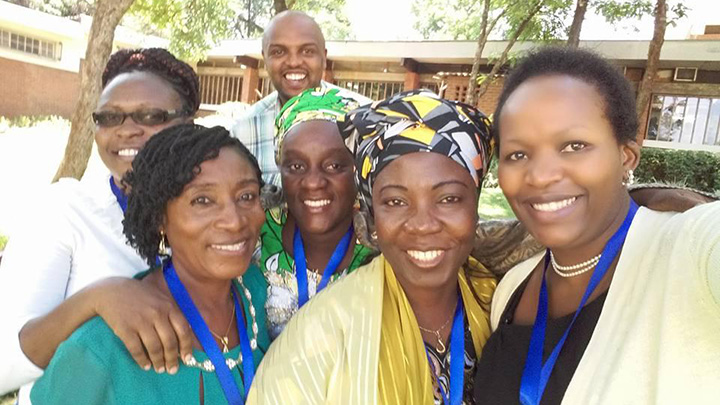
PHOTO/COURTESY
For her passionate work, she has received many accolades nationally and globally:
• Cancer Ambassador, 2016 by Eddah's Hope. The award came when she was tired and wanted to end the six years of volunteering. She says the award showed her that Kenyans believed in her, so she stayed on to continue amplifying her advocacy.
• The Selma Morris Memorial Travel Award 2017 by the American Association of Cancer Education (AACE) led to a trip to the USA. I visited World-Class Cancer Centers. The experience, what I saw, and the vision it created was mind-blowing!
• WE CAN Advocacy Award 2017. It had a small monetary award. Benda used it to host County First Ladies to a breakfast in November 2017, signed an MOU in January 2018 and CFLA formally took up Cancer Advocacy in Kenya. From this small seed, they now have Empower Cancer Clinics in 8 Counties with plans to expand to other counties.
• IGCS Distinguished Advocacy Award 2019. Until then, she had never heard of the International Gynecologic Cancers Society and its recognition humbled her.
• Zuri Awards, Health Category Nominee 2021. This came soon after she established Kilele, and she felt this was an affirmation of the gap her advocacy filled.
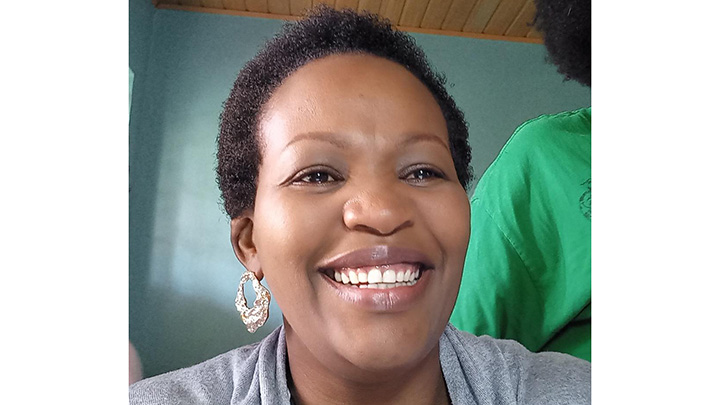
Benda Kithaka. PHOTO/COURTESY
She shares with women some of the lessons she has picked up along the health advocacy path and she divides it into her 3C model:
• Be Curious: probe beyond common knowledge to discover the core issue; and craft solutions. We have so many layers to peel off on the onion called women's health. A diagnosis with clinical depression for a woman in Kenya is very different from someone in the USA. Their realities are worlds apart. Similarly, therapy will work differently on each. We need solutions that consider local environments.
• Be Coachable (teachable): Become a sponge for knowledge. A sponge in a dirty pond will sieve the clear water and leave out the dirt. Sometimes you will be selected to fill a gender quota. Learn as much you can so that when your time comes to be present, you will represent all women. Never allow your lack of knowledge to be the reason they dismiss your arguments.
• Be Consistent: Deliver quality thoughts, words and actions. Identify what you stand for, and stand up for it. We cannot yet read minds, so people know where you stand only if you speak. Find your voice and speak truth to power.
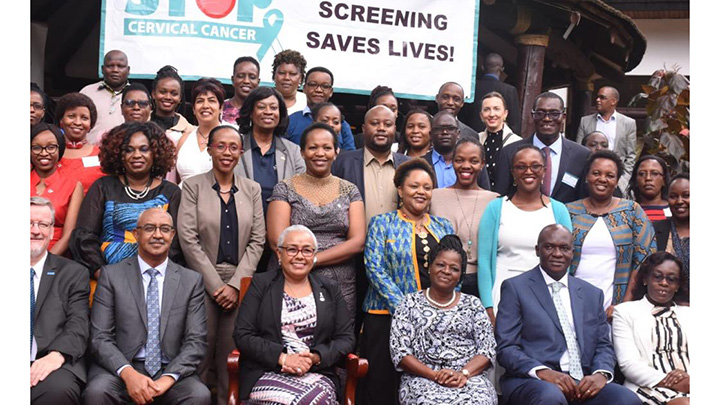
PHOTO/COURTESY
Here are the two most important values she lives by:
• Love: Love of God, self and others. Advocacy helps me extend the compassion I feel towards that one person whose suffering I have encountered to envisage solutions that will positively impact many more.
• Honesty: I maintain integrity in my dealings, recognising that I am successful because people trust my intentions and my words match my actions.
Benda, friends and colleagues describe her as a strategic thinker, a remarkably resilient, and eccentric woman who does not conform to what the society expects of her.
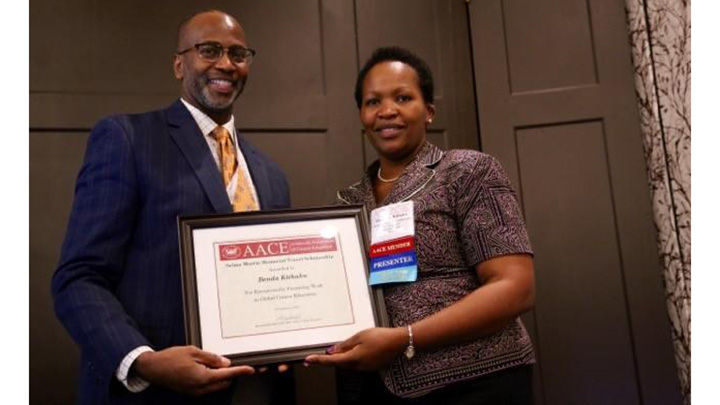
PHOTO/COURTESY
She also shared a vision of the kind of world she would wish to live for the next generation:
• A world where we control modifiable risk factors through simple interventions – eat right, move more, rest enough, avoid the use of alcohol and cigarettes and guard your thoughts.
• A world that yearns for knowledge- Environmental risk factors can be addressed if we put people before profits. We have vaccines and health interventions for disease-causing vectors, and we could reverse adverse human effects on our environment, e.g. pollution and environmental degradation.
• Covid-19 has presented a golden opportunity for us to press the health equity reset button. With an advocacy for best practice, political goodwill and ownership for follow through on critical actions, it is now possible. We all have a duty towards health equity.

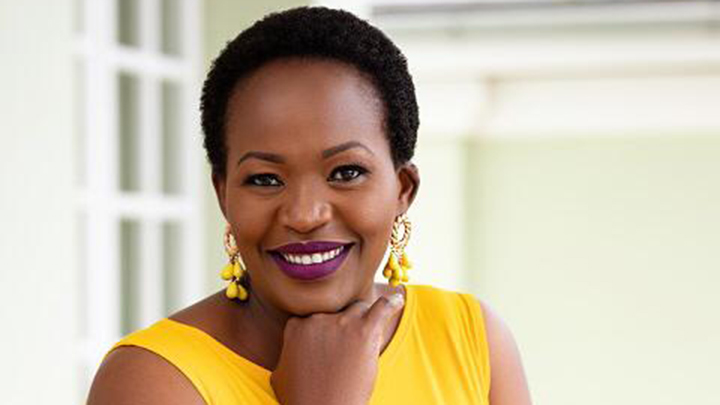
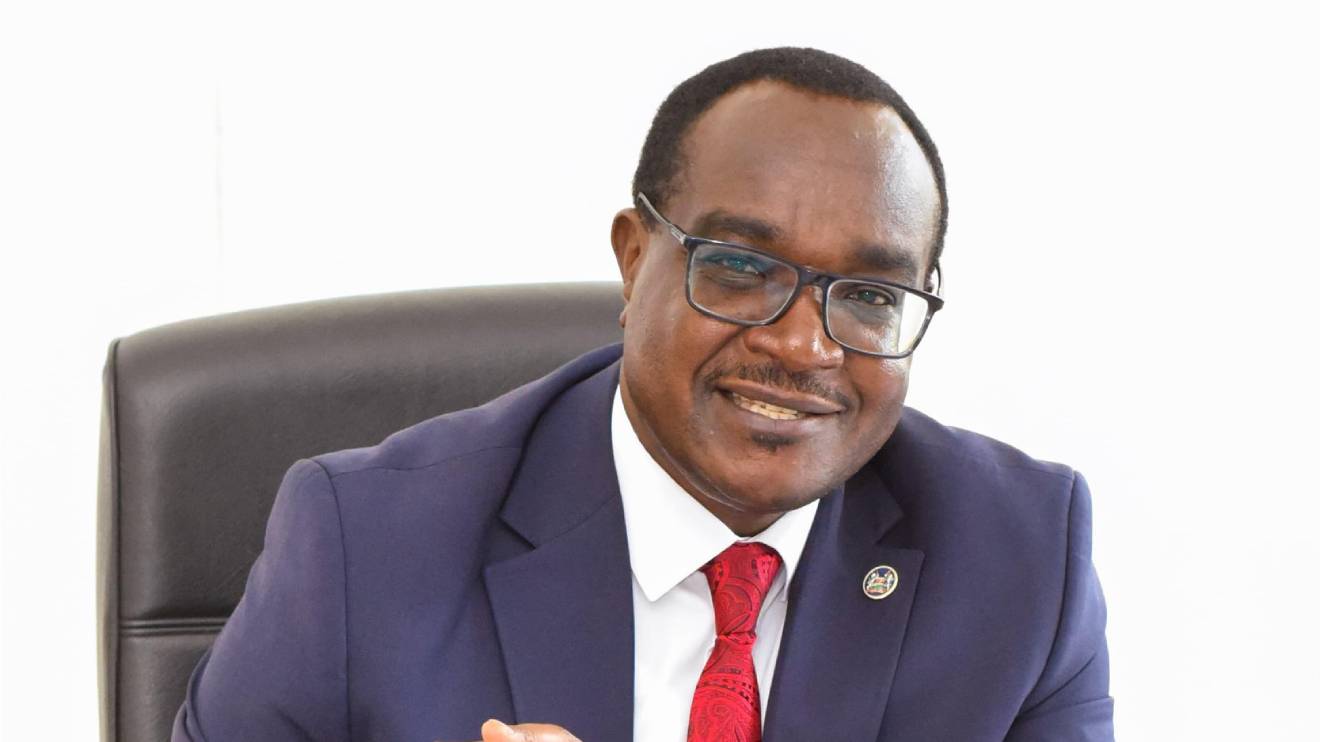
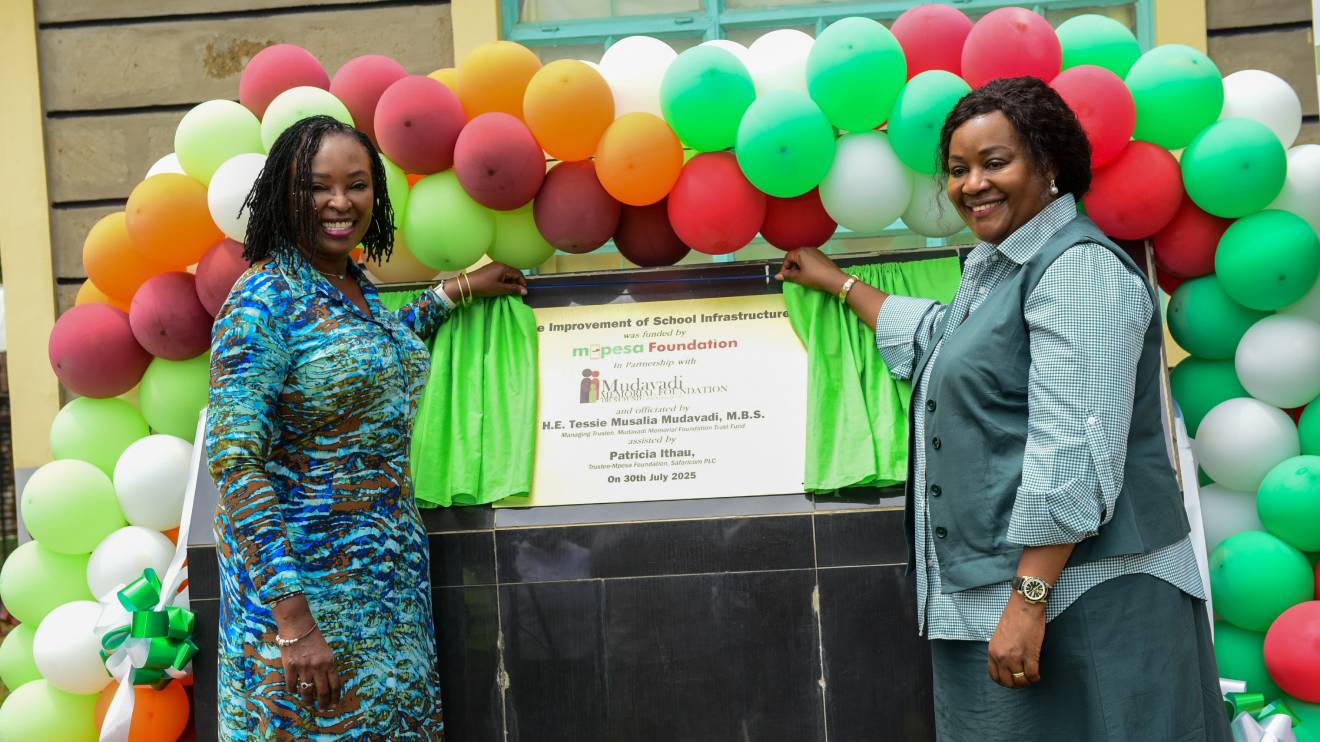
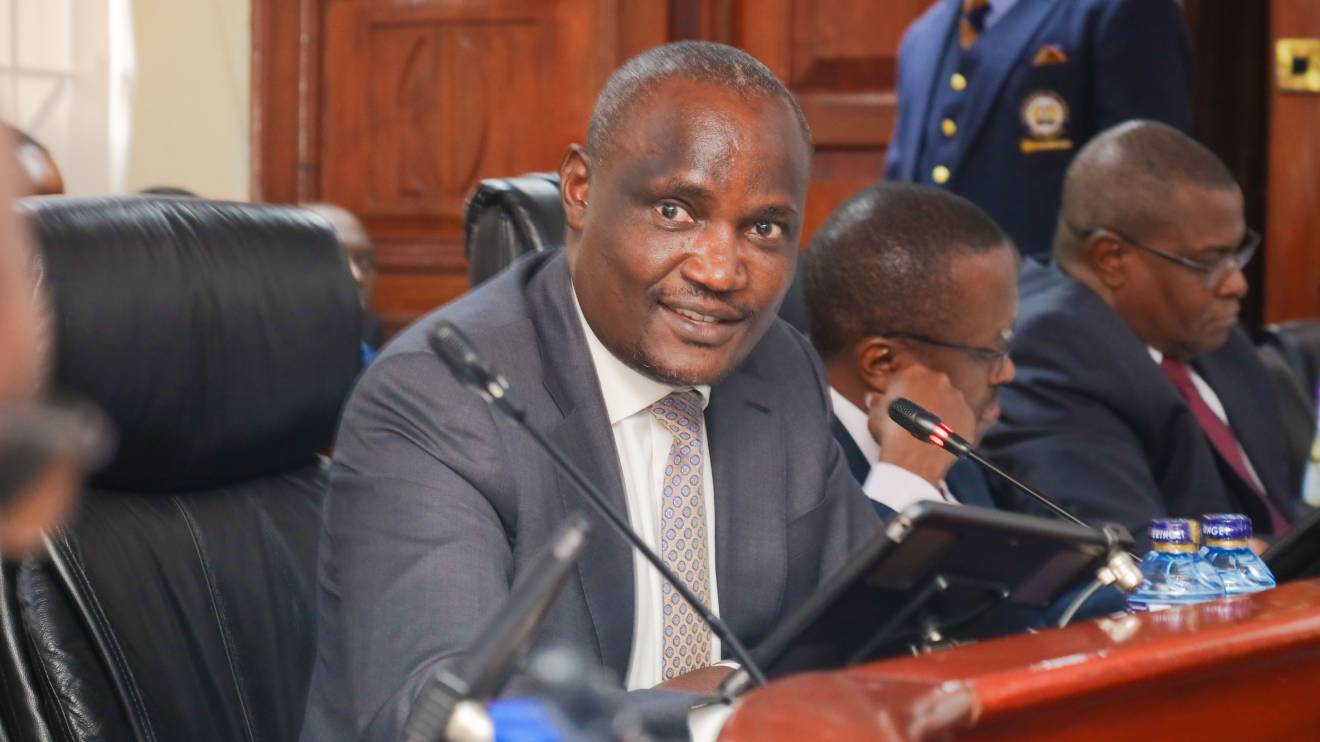
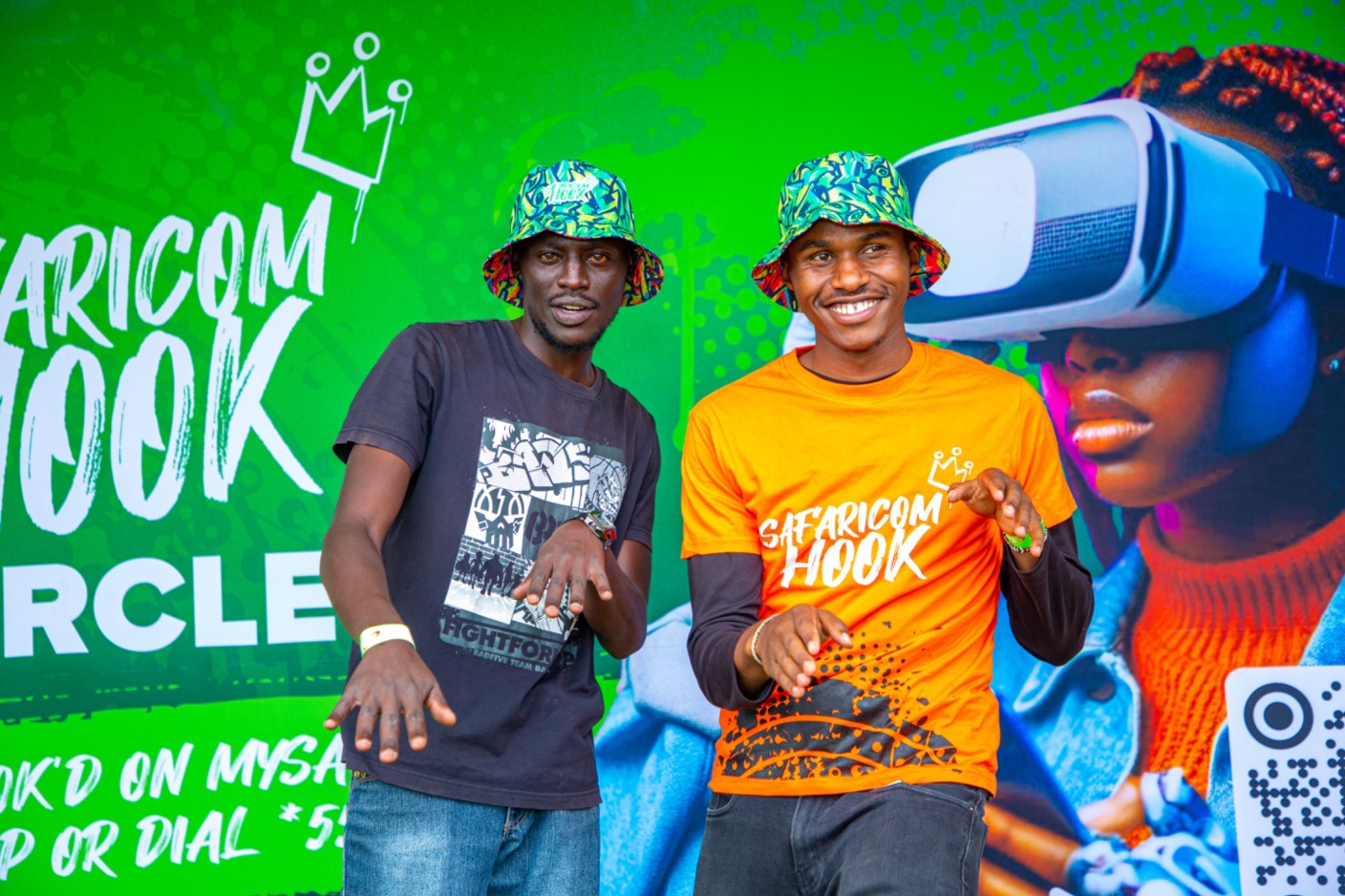
-1752797011.jpeg)
